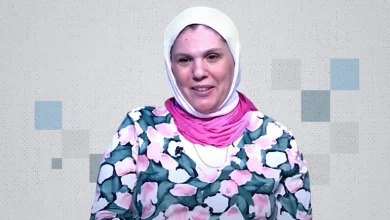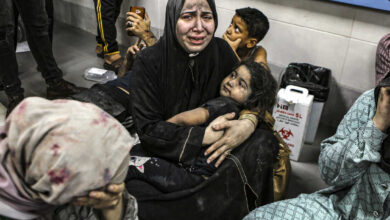The escalating conflict in El Fasher, Sudan, has triggered a wave of condemnation from international bodies and a call for national unity from within the Sudanese government. Following the Rapid Support Forces (RSF)’s recent capture of El Fasher, reports of widespread violence against civilians have surfaced, prompting strong reactions from the African Union and regional organizations. Malik Agar, Deputy Chairman of Sudan’s Sovereign Council, acknowledged the gravity of the situation but urged Sudanese citizens to remain steadfast.
“What our country is going through today is a difficult moment, but it is not the end of the road,” Agar stated, emphasizing the need for cohesion in the face of the RSF’s advances. He framed the army’s retreat in El Fasher as a catalyst for national solidarity. Agar’s comments came as field reports painted a grim picture of the situation on the ground. According to these reports, the RSF has allegedly engaged in widespread killings of civilians and abducted medical personnel after seizing control of the city following months of siege.
The Joint Force of Movements, a coalition fighting alongside the Sudanese Armed Forces (SAF), issued a statement accusing the RSF of committing heinous crimes against innocent civilians in El Fasher. The statement alleged that RSF forces had brutally murdered over 2,000 unarmed citizens, the majority of whom were women, children, and elderly individuals, on October 26th and 27th. These accusations, while difficult to independently verify due to the ongoing conflict and restricted access, have contributed to the growing international concern over the humanitarian crisis unfolding in Darfur.
The African Union (AU) has strongly condemned the reported atrocities in El Fasher. Moussa Faki Mahamat, Chairperson of the AU Commission, expressed his deep concern over the escalating violence and the alleged war crimes committed in the city. In a statement released on social media, Mahamat denounced the “atrocities” and “alleged war crimes” reported from El Fasher, specifically citing reports of civilian killings targeting ethnic groups. The AU’s condemnation adds significant weight to the growing international pressure on all parties involved in the Sudanese conflict to protect civilians and adhere to international humanitarian law.
The Intergovernmental Authority on Development (IGAD), a regional bloc in East Africa, has also voiced its alarm over the deteriorating situation in El Fasher following the RSF takeover. IGAD condemned the violence against civilians and called for an immediate cessation of hostilities. The organization reiterated the urgent need for a peaceful resolution to the conflict and urged all parties to engage in dialogue to prevent further bloodshed and suffering.
For more information about Women, check our dedicated section.
Prior to these international condemnations, the Sudanese Ministry of Foreign Affairs issued a statement condemning what it described as “horrific terrorist crimes committed by the RSF militia in El Fasher, the capital of North Darfur State.” The Ministry asserted that the RSF was engaging in systematic acts of ethnic cleansing and terror against unarmed civilians, including women, children, and the elderly. The statement further alleged that the RSF was proudly documenting these acts, revealing its criminal nature and its dedication to violence and terror. The Sudanese government’s strong language underscores the deep animosity and distrust between the warring factions and highlights the challenges in achieving a lasting peace agreement.
El Fasher held strategic importance as the last major administrative center in the Darfur region still under the control of the SAF before its fall to the RSF. The city had been subjected to an intense siege by the RSF for several months, leading to a significant loss of life and a worsening humanitarian crisis. The siege had severely restricted access to essential supplies, including food, water, and medical care, leaving the civilian population vulnerable to starvation and disease. The RSF’s capture of El Fasher has further exacerbated the humanitarian situation and raised fears of further violence and displacement.
The fall of El Fasher represents a significant turning point in the Sudanese conflict. The RSF’s control of the city strengthens its position in the Darfur region and potentially allows it to consolidate its control over vital resources and trade routes. However, the capture has come at a significant cost, with widespread allegations of human rights abuses and war crimes tarnishing the RSF’s image and increasing international pressure for accountability. The Sudanese conflict, which erupted in April 2023, has already resulted in a devastating humanitarian crisis, with millions of people displaced and facing severe food insecurity. The fighting has also exacerbated existing ethnic tensions and undermined the country’s fragile democratic transition.
International efforts to mediate a ceasefire and facilitate a political solution have so far failed to produce a lasting agreement. The international community faces a complex challenge in addressing the Sudanese conflict, balancing the need to protect civilians with the imperative to respect the country’s sovereignty and avoid interfering in its internal affairs. However, the mounting evidence of atrocities and the worsening humanitarian situation demand a more robust and coordinated international response. This response must include increased humanitarian assistance, stronger diplomatic pressure on the warring parties, and efforts to hold those responsible for war crimes and human rights abuses accountable. The future of Sudan hangs in the balance, and the international community must act decisively to prevent further bloodshed and suffering.



